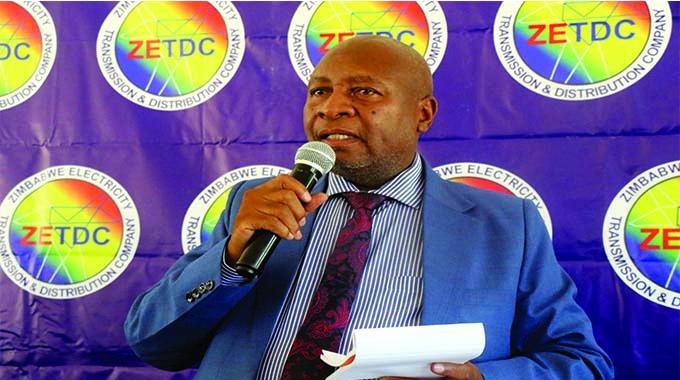News / Local
Zimbabwe fret over new rolling blackouts
10 Jul 2024 at 16:01hrs |
0 Views

Zimbabwe's Energy Minister Edgar Moyo has been summoned by Parliament to address the severe hydrological challenges at Kariba Power Station, leading to extensive power outages of up to 18 hours in urban areas. Murehwa South MP Noah Mangondo highlighted that the station has lost 800 megawatts of production due to low water levels, exacerbated by climate change. He questioned the status of the Gokwe-Sengwa Project, which could alleviate current power shortages by generating 2,000 megawatts.
Following Deputy Minister Yeukai Simbanegavi's inadequate responses, the Speaker ruled for a comprehensive ministerial statement on the power crisis. MPs, including Mkoba North MP John Kuka and Makoni Central MP Patrick Sagandira, pressed for solutions beyond Kariba Dam, advocating for utilizing other dams like Tugwi-Mukorsi, Lake Rusape, and Osborne for power generation. Bindura South MP Rammigious Matangira queried the potential of uranium to supplement thermal power generation.
The power cuts have severely impacted industry, with some companies enduring daily unscheduled load shedding of up to 12 hours. The Zimbabwe Power Company (ZPC) is generating 1,206 megawatts against a demand of 1,700 megawatts, with Hwange Power Station producing 914 megawatts and Kariba South Hydroelectric Power Station only 292 megawatts out of 1,050 megawatts potential.
To bridge the deficit, Zimbabwe imports electricity from Eskom, Hydro Cahora Bassa, and Zesco, but faces challenges due to non-firm contracts and regional electricity shortages. Outdated technology hinders smaller plants in Bulawayo, Munyati, and Harare, which are slated for decommissioning. The Zambezi River Authority reported a significant drop in Lake Kariba's water levels, impacting hydropower generation.
The Zimbabwe National Chamber of Commerce President Mike Kamungeremu noted the crisis's toll on industry, advocating for special arrangements with Zesa to mitigate outages for large plants. Many companies are investing in alternative power sources like solar and generators to sustain operations amid ongoing disruptions and rising costs. Kamungeremu urged more businesses to diversify energy sources to reduce reliance on the national grid.
Following Deputy Minister Yeukai Simbanegavi's inadequate responses, the Speaker ruled for a comprehensive ministerial statement on the power crisis. MPs, including Mkoba North MP John Kuka and Makoni Central MP Patrick Sagandira, pressed for solutions beyond Kariba Dam, advocating for utilizing other dams like Tugwi-Mukorsi, Lake Rusape, and Osborne for power generation. Bindura South MP Rammigious Matangira queried the potential of uranium to supplement thermal power generation.
The power cuts have severely impacted industry, with some companies enduring daily unscheduled load shedding of up to 12 hours. The Zimbabwe Power Company (ZPC) is generating 1,206 megawatts against a demand of 1,700 megawatts, with Hwange Power Station producing 914 megawatts and Kariba South Hydroelectric Power Station only 292 megawatts out of 1,050 megawatts potential.
To bridge the deficit, Zimbabwe imports electricity from Eskom, Hydro Cahora Bassa, and Zesco, but faces challenges due to non-firm contracts and regional electricity shortages. Outdated technology hinders smaller plants in Bulawayo, Munyati, and Harare, which are slated for decommissioning. The Zambezi River Authority reported a significant drop in Lake Kariba's water levels, impacting hydropower generation.
The Zimbabwe National Chamber of Commerce President Mike Kamungeremu noted the crisis's toll on industry, advocating for special arrangements with Zesa to mitigate outages for large plants. Many companies are investing in alternative power sources like solar and generators to sustain operations amid ongoing disruptions and rising costs. Kamungeremu urged more businesses to diversify energy sources to reduce reliance on the national grid.
Source - online
Join the discussion
Loading comments…



































